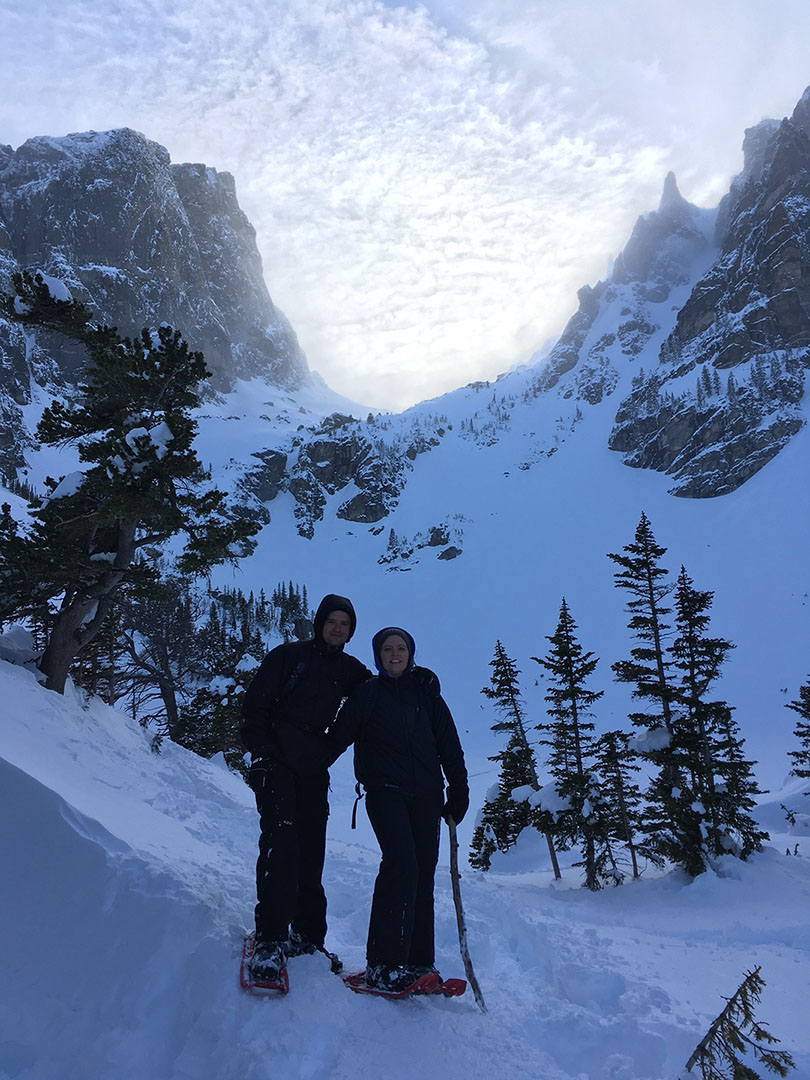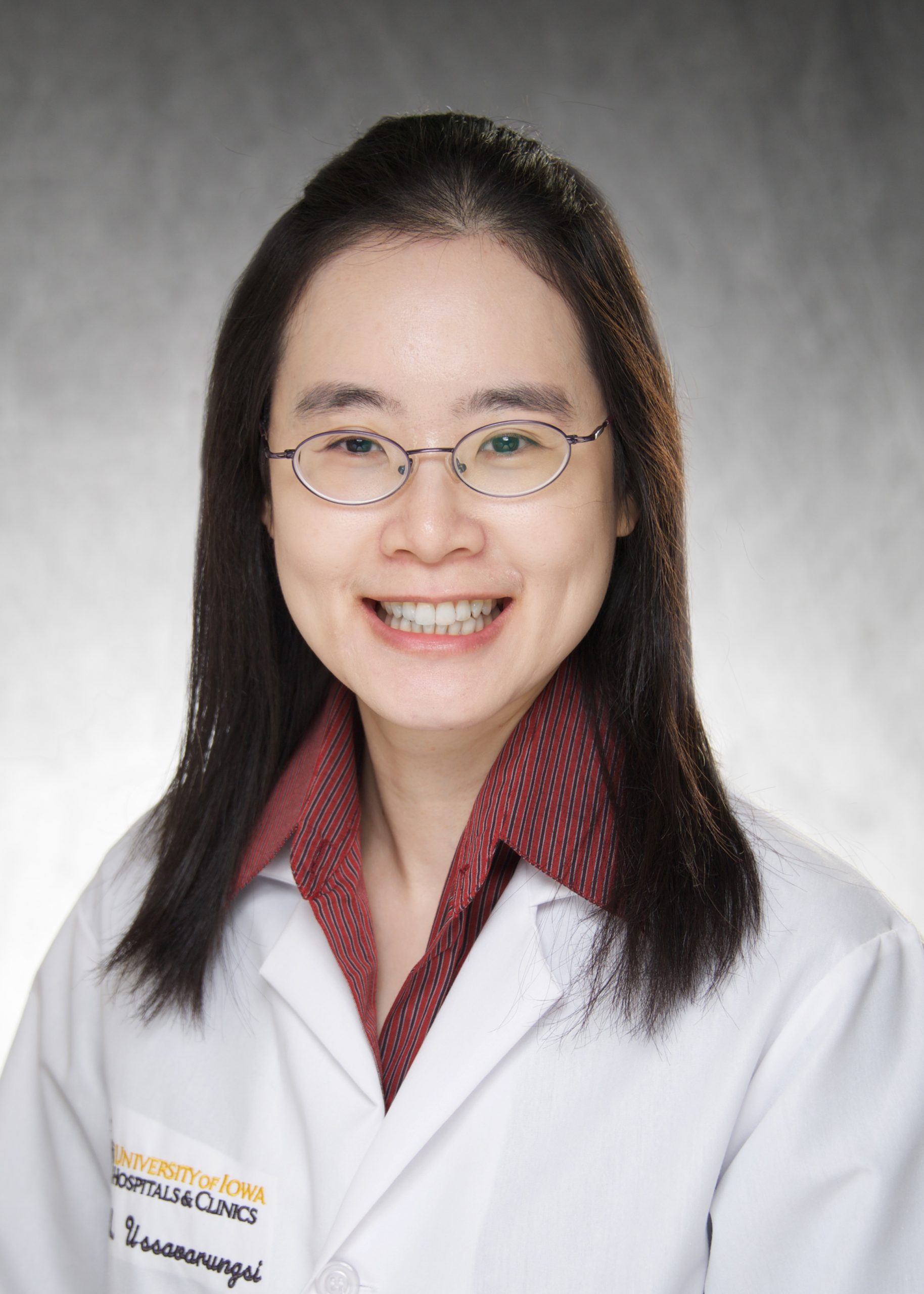 Dr. Meredith Schaffner is about to begin the third and final year of her hematology and medical oncology fellowship. Though she has solidifying ideas about the next step in her career, her more immediate plans involve summer travel. She just returned from a trip to Estes Park, Colorado, hiking in Rocky Mountain National Park. In a couple weeks, she will travel to southern Italy for her brother’s wedding, and then a week after that she will be in Berlin, where her brother lives, for a hematology conference, at which she has had a poster accepted. “(Submitting the poster) had an ulterior motive to see my brother,” she says with a laugh.
Dr. Meredith Schaffner is about to begin the third and final year of her hematology and medical oncology fellowship. Though she has solidifying ideas about the next step in her career, her more immediate plans involve summer travel. She just returned from a trip to Estes Park, Colorado, hiking in Rocky Mountain National Park. In a couple weeks, she will travel to southern Italy for her brother’s wedding, and then a week after that she will be in Berlin, where her brother lives, for a hematology conference, at which she has had a poster accepted. “(Submitting the poster) had an ulterior motive to see my brother,” she says with a laugh.
Though travel may be a personal passion, it has not interfered with her development as a physician. In some cases, it has only aided it. Growing up in a small northeast Iowa town called Sumner, Dr. Schaffner says she “fell into health care.” The only job available in the town of about 2,000 people was as a nurse’s aide in the local nursing home. “That’s how I got started working with the elderly, a population I really love.”
She kept working as a nurse’s aide while attending the University of Northern Iowa, eventually settling on Biology and Chemistry for her Bachelor’s, quickly followed by medical school at Des Moines University. But that urge to travel never left. One of her rotations during medical school was spent in Uganda, working in the emergency department of Kampala’s main hospital. The experience was transformative for Dr. Schaffner. “It really affected how I practice, because I’ve seen people who just need more help than anyone I’ve ever met here. It was really hard, but really gratifying too, to be able to help.” It also gave her perspective on her own life. “When I start to get whiny about my circumstances, I take a step back and remember how lucky I am.”
It was not until her residency here at the University of Iowa that Dr. Schaffner began to edge toward hematology as an emphasis. Initially she expected to be an internist, until a rotation on the in-patient hematology-oncology service paired her with an attending named Dr. Lori Rosenstein. “She was a really great mentor and got me interested in benign hematology,” Dr. Schaffner says.
Dr. Rosenstein’s guidance grew when she and Dr. Schaffner noticed high incidences of ferritin levels being requested. In some cases, extremely high levels can indicate hemophagocytic lymphohistiocytosis (HLH), which requires an aggressive chemotherapy regimen to combat. Which is why, Dr. Schaffner points out, “you don’t want to misdiagnose it.” She and Dr. Rosenstein hoped to bring a greater understanding that not every high level of ferritin indicated HLH. Some could be elevated because of liver or kidney disease or a bacterial infection. “What we found,” she says, “is that the degree of elevated ferritin can be a lot more specific for HLH, in the twenty to thirty thousand range.” With additional contributions from Dr. Manish Suneja and Dr. Zuhair Ballas, Dr. Schaffner published their results and recommendation for a higher ferritin threshold in the American Journal of the Medical Sciences just a couple months ago.
After that research experience, Dr. Schaffner’s post-residency career seemed clear to her. First, she wanted to keep studying hematology. (“I’m one of the rare hematology enthusiasts in our fellowship program.”) And second, that she wanted to stay at Iowa for her fellowship. “For teaching and opportunities, I thought it would be a good match. The attendings I worked with as a resident were really supportive as far as my career goals. It was a good fit.”
And those attendings would agree that Dr. Schaffner made the right choice. Dr. Suneja notes her “enthusiasm for learning” and her dedication to hard work. “She is a real team player and goes above and beyond in every aspect of patient care even if that means sacrificing her own personal time.”
Now, almost exactly two-thirds of the way through her fellowship, Dr. Schaffner has begun to weigh next steps, potentially looking for a private practice or a community-based oncology group large enough to support her continued interest in hematology. She and her boyfriend, who is finishing his own program in Public Health, will start applying for jobs this fall, most likely out of state, in the west. “I’ve been here for thirty years, I might need to branch out.” We can always hope that that travel itch will bring Dr. Schaffner back to campus at least for a visit.


Wow, nice article, Dr Schaffner (Mere)!!
Very nice article!